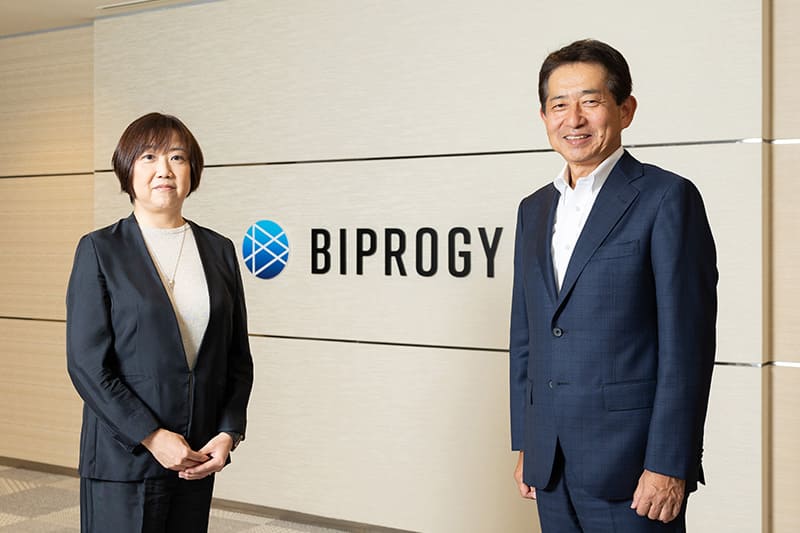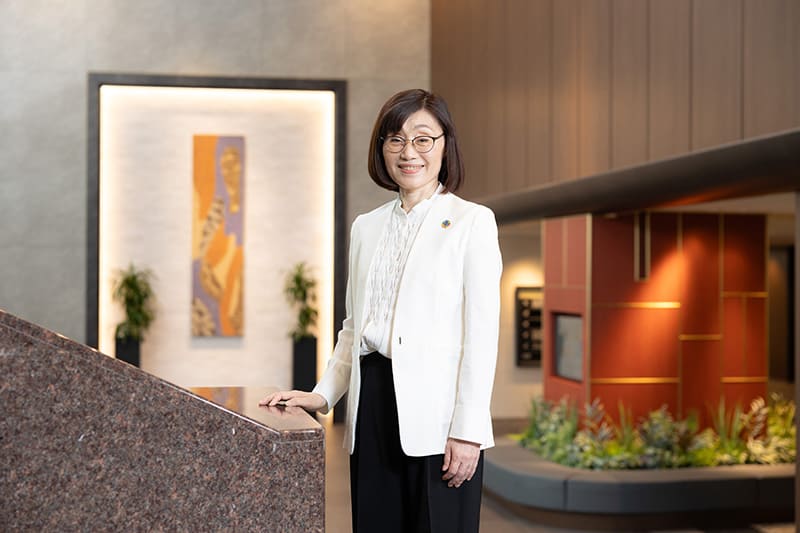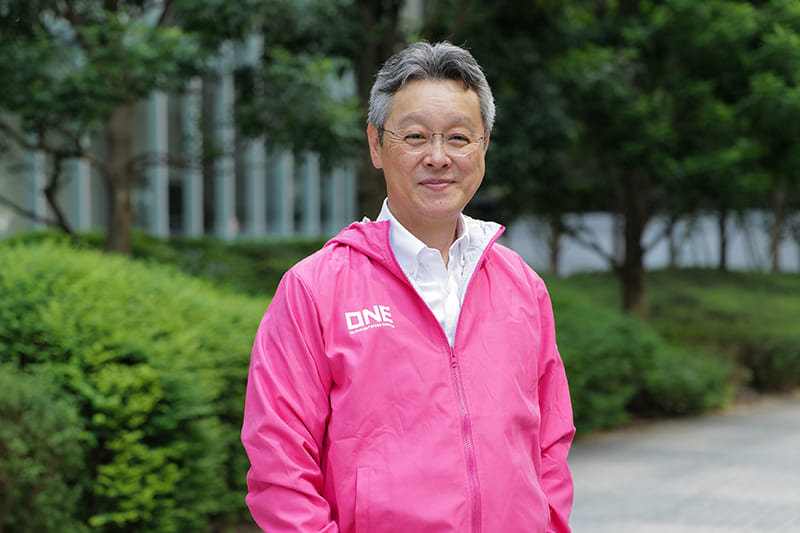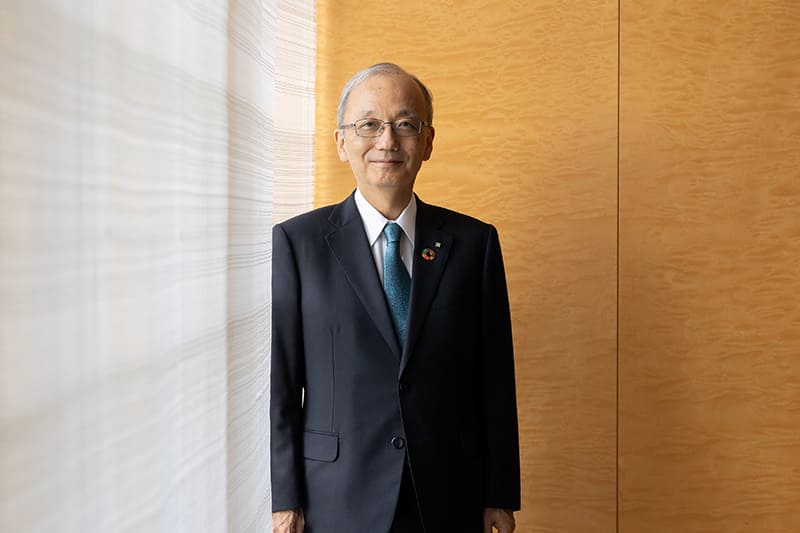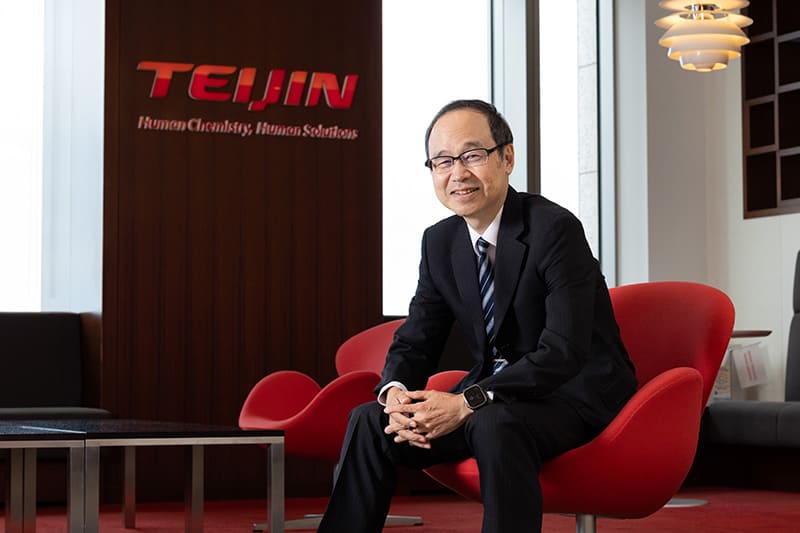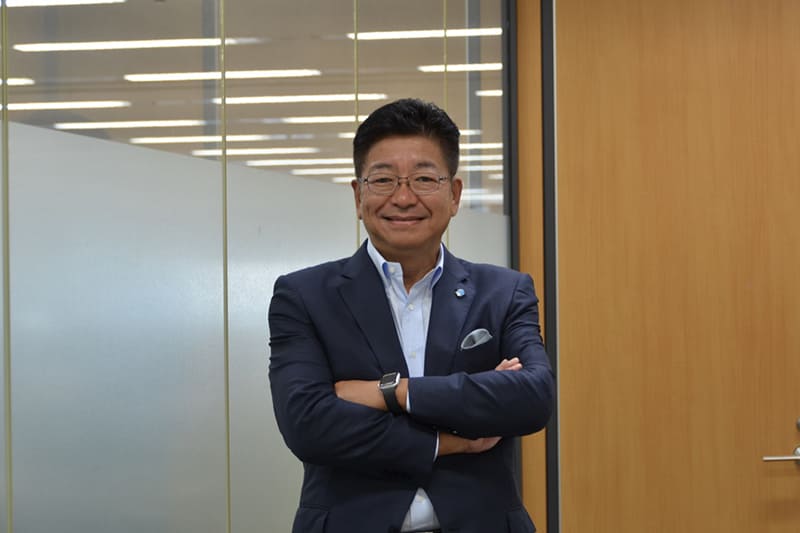September 16, 2022
Seino delivers happiness for workers and customers
Contributing writer
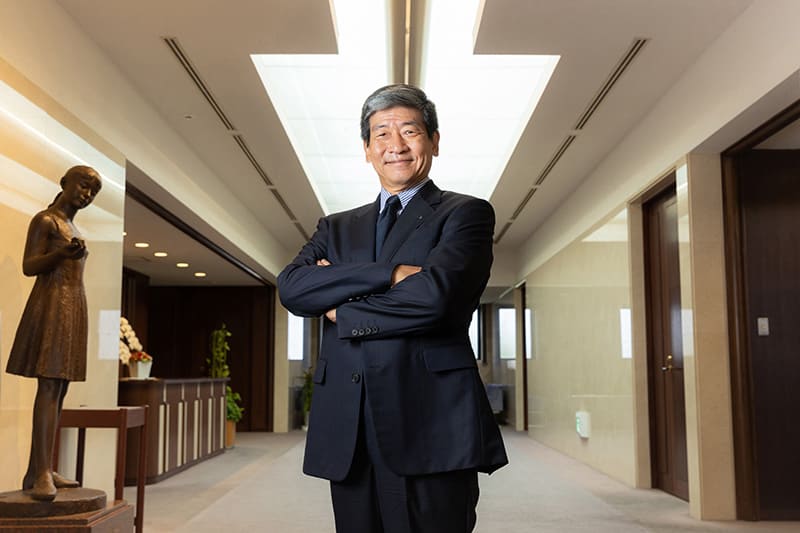
What makes Seino Holdings Co. more competitive than many other companies owned and run by their founding families is its strong belief in its roots.
“Our basic business concept is based on the founder’s management philosophy: ‘Making the company thrive leads to employees’ happiness,’” said President and Chief Executive Officer Yoshitaka Taguchi.
On top of the founder’s philosophy, Seino has its corporate purpose: “Providing customers with extra wealth for their prosperity.”
The trucking business was launched in 1930 by Rihachi Taguchi, the grandfather of Yoshitaka Taguchi. He eventually expanded the company to become the largest land transportation firm in Japan, with more than 6,000 trucks (Seino now has 25,000).
“The factors that make our workers happy is their economic fulfillment, a sense of pride in their jobs, and our business potential that can make them view the future from a bright perspective,” Taguchi said.
But making customers and workers happy was not what many Japanese corporations aimed for in the early 1900s, when many workers were forced to do long hours of hard work at low pay in labor-intensive industries.
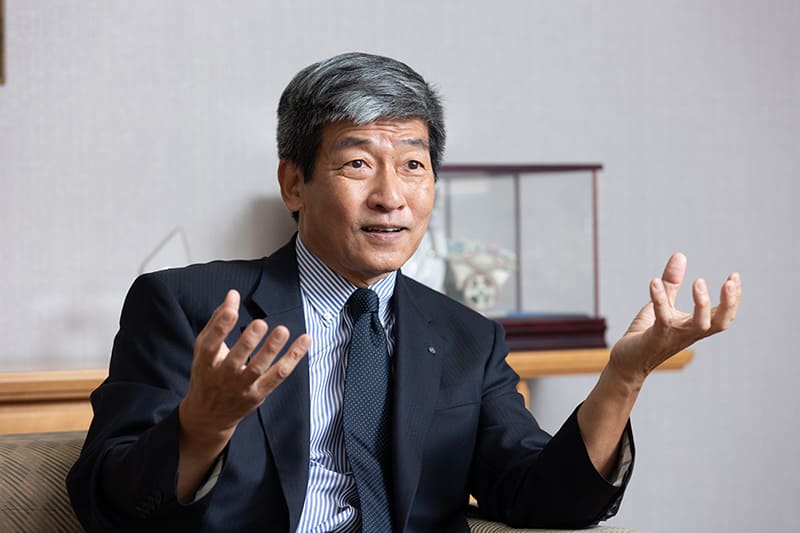
Where Rihachi Taguchi differed from other business owners was that he himself worked as a delivery driver, meaning he knew how heavy packages were and how the work made the body ache. The experience led him to care about his employees, Taguchi said. Another reason the founder emphasized the importance of workers’ happiness was his experience in war. Having joined the military to fight in China before he started the company, he knew how precious human life is because he saw many of his comrades die during the war, Taguchi said.
When the trucking company was founded in 1930, the transportation industry was not yet mature. For instance, out of 10 rolls of kimono cloth that clients asked to be delivered, only nine arrived. Some of the excuses that deliverers made were that they had had lost it somewhere, or accidentally stained it — a thing that often happened in the early years of truck deliveries. Trucks were targets of theft as well. If a truck driver stopped at a red light, someone would sometimes open the tarp at the back and steal some of the packages piled up inside.
To gain customers’ trust, Rihachi Taguchi’s approach was to create additional value through information communication by letting senders know when their packages will arrive.
Beginning with the idea of how create value to make their customers happy, is what keeps Seino ahead of its competitors.
His company was also ahead of others because his actions changed the rules for the postwar transportation industry. Originally, only the national railway company was licensed for long-distance package deliveries. But wartime bombings cut some rail lines, which encouraged him to go to the transportation ministry and ask that Seino be licensed for door-to-door deliveries by truck. He persuaded the ministry that this business model was necessary for the Japanese economy to grow in the postwar era.
“We always think about our contribution to our society and employees. At the same time, we make progress by creating value. It is in our DNA to have respect for workers, encourage self-growth and contribute to other people,” Taguchi said.
Another concept that Taguchi depends upon to keep on managing the three-generation business is the family ethic. His grandfather, who pursued the growth of his company, often told his children and grandchildren to be frugal. Taguchi said he remembers his grandfather often told them at dinner, “Eating a whole saury makes a family ruined.” Sauteed Pacific saury is a common dish for dinner in Japan, but seafood was so precious in mountainous Gifu Prefecture, where the elder Taguchi launched his business, that he thought eating a whole piece for dinner was not what they should do. Therefore, he told his family to eat just a half piece and leave the rest for the next day.
This ethic was passed on to his oldest son, Toshio, who became Seino’s second president. Never having played golf, he once had a chance to play withan acquaintance. The next day, he declared that he was placing a ban on playing golf for business. The reason? He said the sport was so exciting that it could ruin his company.
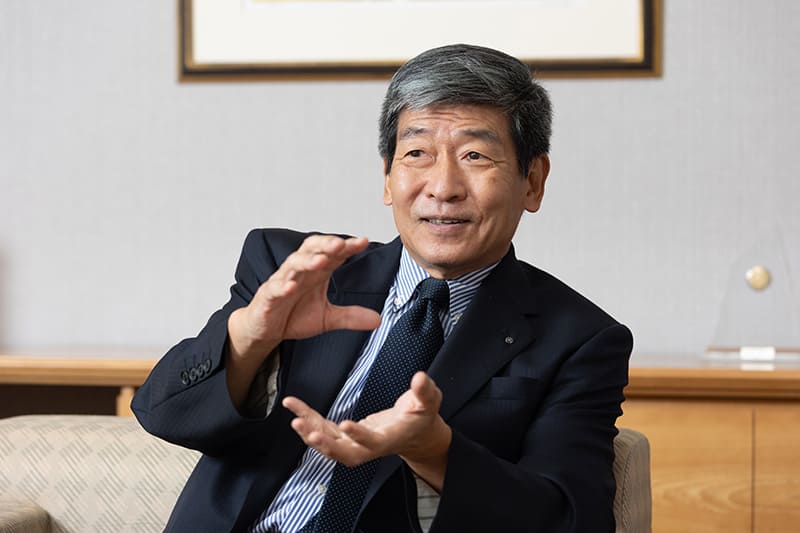
Always understanding the client’s perspective led to a wider range of business — not just deliveries but also sales. Responding to customers’ needs, Toshio Taguchi announced 35 years ago that Seino would become a “total-service distributor” or “logistics company,” providing customers with information about their needs and selling them the products they needed. Today, sales of products are a significant part of Seino’s overall sales.
Taking the customer’s perspective also led to a new business model, Open Public Platform, which Seino and other transportation companies share for customers’ benefit. For example, Seino and the drone developer Aeronext Inc. jointly set up a new service model, SkyHub, in 2021. The purpose of this platform is to deliver daily necessities safely and efficiently to sparsely populated mountain communities. In cooperation with other trucking companies, they started the drone delivery service for such areas, where delivery otherwise would take time or be done much less frequently.
The service not only benefits local communities where the population is rapidly declining. It also has side benefits for transportation companies, Taguchi said. “This service has a huge impact on carbon offsets. Not only that, we can cut down on hidden costs,” he said. Before using the platform, trucking companies needed to deliver packages separately. But by using the platform, a drone can deliver multiple parcels from different companies at the same time.
Another example of the Open Public Platform is Hacobell, a logistics-sharing platform that was launched earlier this year through a joint venture between Seino and Raksul, a provider of printing and logistics services.
In the future, Seino aims to deal with the production management business through making alliances with companies that have expertise in that field. “What I want to do is work for customers’ value chain — marketing, purchasing and logistics. The ultimate goal is resolve our customers’ worries. We want to be a part of our customers’ value and continue to provide value.
Naonori Kimura
Industrial Growth Platform Inc. (IGPI) Partner
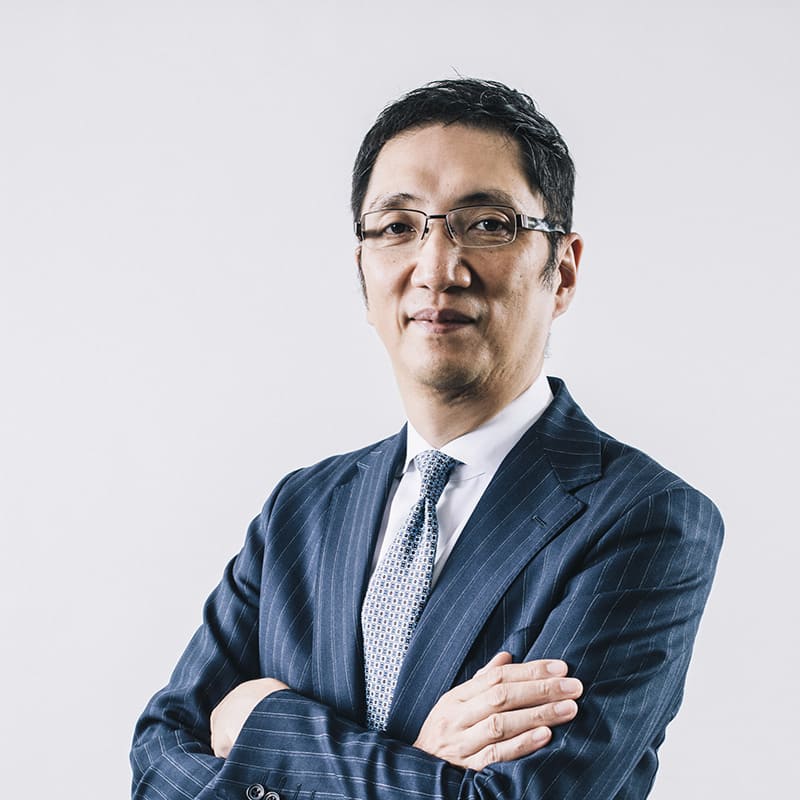
Seino Holdings upholds the founder’s strong feeling that making the company thrive and its workers happy at the same time must be the core management philosophy. It also has the belief that developing the business leads to customers’ happiness. With these concepts, I found that all the company’s business activities and corporate culture head in the same direction of creating values that bring it closer to its customers.
One of the pillars of supporting its employees’ happiness is creating pride in their jobs. This pride comes from seeing the gratitude of customers, expressed with a “thank you,” which increases motivation among workers. The driving force of the founder, Rihachi Taguchi, who developed a new business model in the still-immature distribution market and caused it to evolve by taking the initiative in rule-making, was adopting the perfect client perspective and the pursuit of rationality. This perspective has an impact on today’s business. For instance, as President Yoshitaka Taguchi told us, Seino launched a business platform shared with other companies in the logistics industry to respond to societal changes such as decreasing population in remote rural areas.
The president also has a new business idea that goes beyond logistics. I could see an image of the company’s future, continuing to evolve and get closer to its customers, in the eyes of Taguchi, who strongly said in our interview that every business decision depends on whether the business benefits customers or not.

